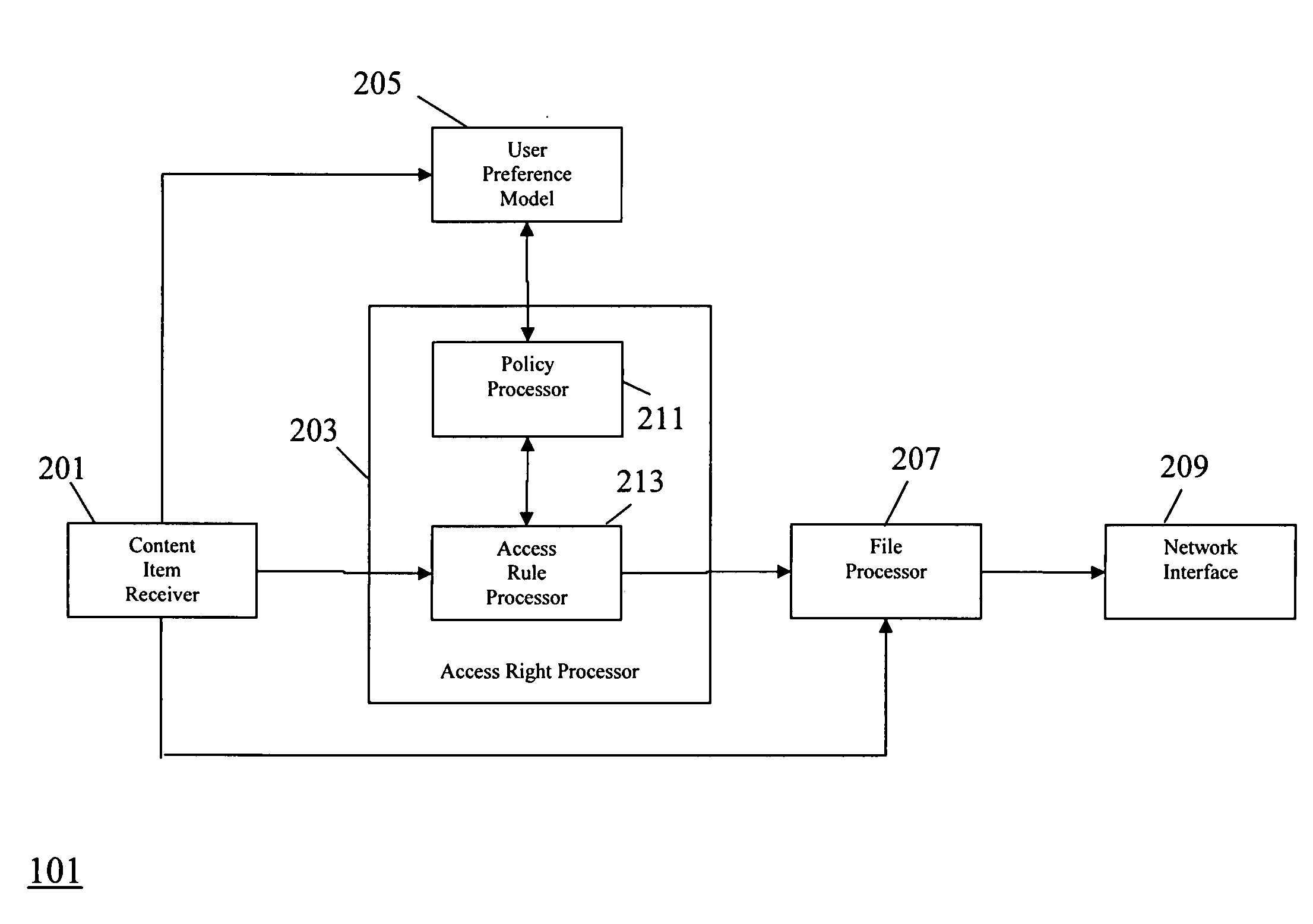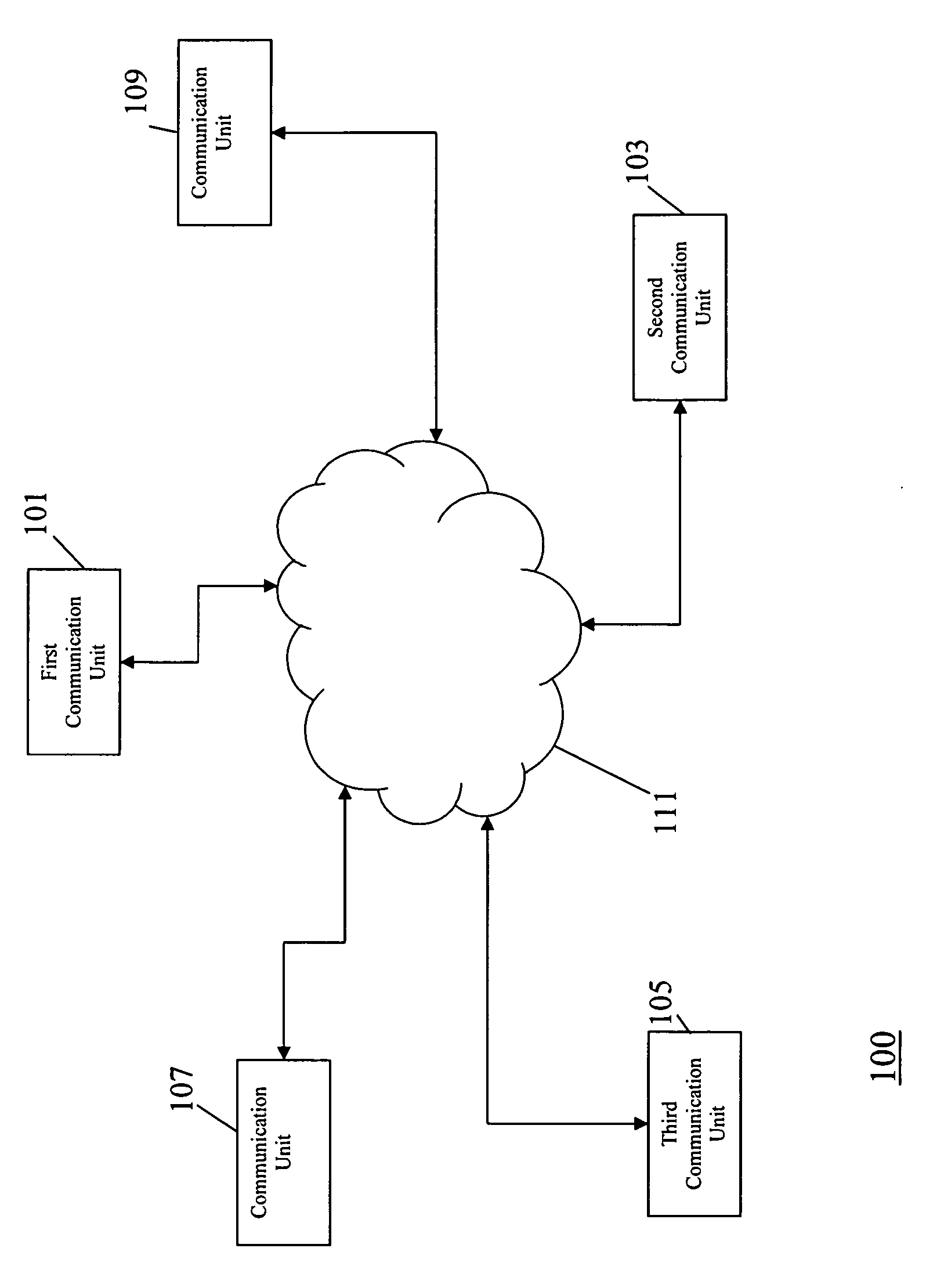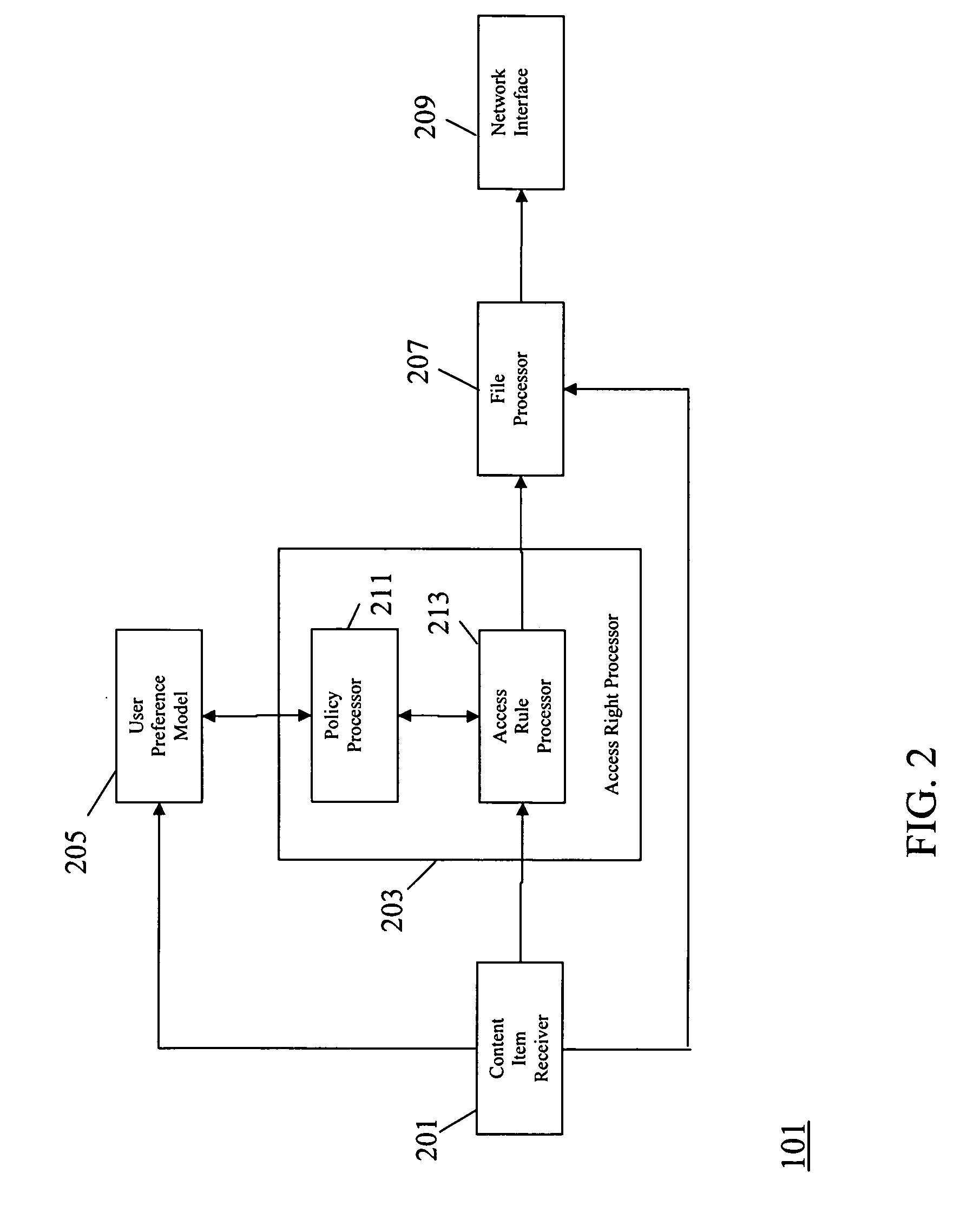Content Access Rights Management
a content access and management technology, applied in the field of content access rights management, can solve the problems of increasing the sharing and distribution of content by individual consumers, users often are not aware that they are exposing further hidden information, and the protection of personal content is very limited
- Summary
- Abstract
- Description
- Claims
- Application Information
AI Technical Summary
Benefits of technology
Problems solved by technology
Method used
Image
Examples
Embodiment Construction
[0062]FIG. 1 is an illustration of a communication system comprising some embodiments of the invention.
[0063]The communication system comprises a number of communication units 101-109 which can communicate with each other through an interconnecting network 111. For example, the communication units 101-109 can be remote stations of a cellular communication system and the interconnecting network 111 can be the fixed network of the cellular communication system. As another example, the communication units 101-109 can be personal computers communicating with each other through the interconnecting network 111 in the form of the Internet. It will be appreciated that the invention is applicable to many other kinds of content item distribution elements and communication systems.
[0064]In the example, a first communication unit 101 is arranged to distribute content items to one or more of the other communication units 103-109.
[0065]FIG. 2 illustrates the first communication unit 101 of FIG. 1...
PUM
 Login to View More
Login to View More Abstract
Description
Claims
Application Information
 Login to View More
Login to View More - R&D
- Intellectual Property
- Life Sciences
- Materials
- Tech Scout
- Unparalleled Data Quality
- Higher Quality Content
- 60% Fewer Hallucinations
Browse by: Latest US Patents, China's latest patents, Technical Efficacy Thesaurus, Application Domain, Technology Topic, Popular Technical Reports.
© 2025 PatSnap. All rights reserved.Legal|Privacy policy|Modern Slavery Act Transparency Statement|Sitemap|About US| Contact US: help@patsnap.com



